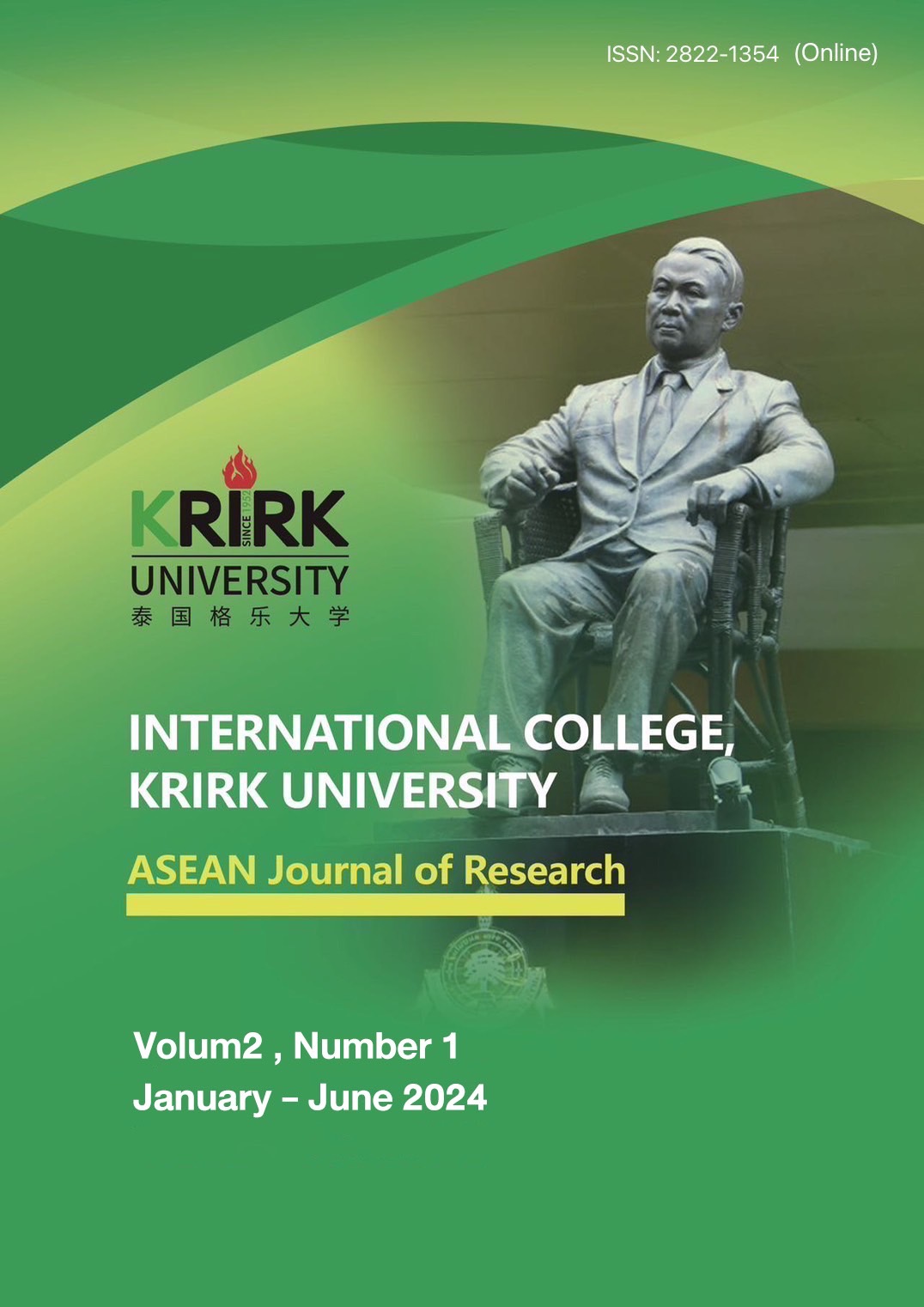Influence of COVID-19 Pandemic on Personal Health and Hygiene Practices among Commercial Bus Drivers in Lagos Metropolis
Keywords:
COVID-19, hygiene practices, personal healthAbstract
The purpose of this study was to examine the influence of the COVID-19 pandemic on personal health and hygiene practices among commercial bus drivers in Lagos Metropolis. A descriptive survey research design was adopted for this study, with a multistage sampling technique. A stratified sampling technique was adopted to select the study locations, while a simple random sampling technique was used to pick 603 respondents who formed the sample for the study. The researchers used a revalidated questionnaire with a test-retest method yielding a Cronbach alpha score of 0.94. Data were analyzed using inferential statistics and regression analysis to test the stated hypotheses at a 0.05 level of significance. Results indicated that the COVID-19 pandemic significantly influenced the personal health of commercial bus drivers, significantly influenced the hygiene practice among commercial bus drivers, the rate of compliance with COVID-19 guidelines was significantly low among commercial bus drivers and the knowledge of prevention strategies for COVID-19 significantly affected the hygiene practices of commercial bus drivers in Lagos Metropolis.
References
Ajibo, H., (2020). “Effect of Covid-19 on Nigerian socio-economic well-being, health sector pandemic preparedness and the role of Nigerian social workers in the war against Covid-19,” Social Work in Public Health, 35(7), 1-21.
Ajide, K.B., Ibrahim, L.R. & Alimiab, O.Y. (2020). “Estimating the impacts of lockdown on Covid-19 cases in Nigeria,” Transportation Research Interdisciplinary Perspectives, 7(1), 40-54.
Al-Hanawi1, M.K., Angawi, K., Alshareef, N., Qattan, A.M.N., Helmy, H.Z., Abudawood, Y., Alqurashi, M., Kattan, W.M., Kadasah, N.A., Chirwa, G.C. & Alsharqi, O. (2020). “Knowledge, attitude and practice toward COVID-19 among the public in the Kingdom of Saudi Arabia: A cross-sectional study,” Frontiers in Public Health, 8, 217. DOI: 10.3389/fpubh.2020.00217.
Beck, M.J. & Hensher, D.A. (2020). “Insights into the impact of COVID-19 on household travel and activities in Australia - The early days of easing restrictions,” Transport Policy, 99, 95–119.
Chirwa, G.C. (2019). “Socio-economic inequality in comprehensive knowledge about HIV in Malawi,” Malawi Medical Journal, 31, 104–11. DOI: 10.4314/mmj.v31i2.1.
Emmanuel, J. (2020). “Covid-19 implications for public transport and shared taxi in Nigeria,” Transformative Urban Mobility Initiative, available at: https://www.transformative-mobility.org/news/covid-19-implications-for-public-transport-and-shared-taxi-in-nigeria.
Gkiotsalitis, K. & Cats, O. (2020). “Public transport planning adaption under the COVID-19 pandemic crisis: Literature review of research needs and directions,” Transport Reviews, 41(3), 374-92. DOI: https://doi.org/10.1080/01441647.2020.1857886.
Greenhalgh, T., Schmid, M.B., Czypionka, T., Bassler, D. & Gruer, L. (2020). “Face masks for the public during the covid-19 crisis,” British Medical Journal, 369, 1–4. DOI: https://doi.org/10.1136/bmj.m1435.
Hernandez, A.T. (2020). “Coronavirus: What if we stop repeating that public transport is risky?” Medium, available at: https://medium.com/@alejandro.tirachini/coronavirus-what-if-we-stop-repeating-that-public-transport-is-risky-5ae30ef26414.
Lee, M., Kang, B.A. & You, M. (2021). “Knowledge, attitudes, and practices (KAP) toward COVID-19: A cross-sectional study in South Korea,” BMC Public Health, 21, 295.
Nigeria Center for Disease Control (NCDC) (2021a). “COVID-19,” available at: https://covid19.ncdc.gov.ng/faq/.
Nigeria Center for Disease Control (NCDC) (2021b). “COVID-19 Nigeria,” available at: https://covid19.ncdc.gov.ng/.
Olapegba, P.O., Ayandele O. & Kolawole S.O, (2020). “COVID-19 knowledge and perceptions in Nigeria: A preliminary assessment of novel coronavirus (COVID-19). COVID-19 SARS-CoV-2,” Data in Brief. DOI: 10.1016/j.dib.2020.105685.
Ozili, P.K., (2020). “Covid-19 pandemic and economic crisis: The Nigerian experience and structural causes,” Journal of Economic and Administrative Sciences, 37(4), 401-18. DOI: https://doi.org/10.1108/JEAS-05-2020-0074.
Podder, D., Paul, B., Dasgupta, A., Bandyopadhyay, L., Pal, A. & Roy, S. (2019). “Community perception and risk reduction practices toward malaria and dengue: A mixed-method study in slums of Chetla, Kolkata,” Indian Journal of Public Health, 63, 178. DOI: 10.4103/ijph.IJPH_321_19.
Shelat, S., Cats, O. & van Cranenburgh, S. (2020). “Avoiding the crowd: How do passengers trade-off time and crowding in the age of COVID-19,” preprint, available at: https://arxiv.org/abs/2104.10973.
World Health Organization (WHO) (2021a). “Coronavirus disease (COVID-19) advice for the public: Mythbusters,” available at: https://www.who.int/emergencies/diseases/novel-coronavirus-2019/advice-for-public/myth-busters.
World Health Organization (WHO) (2021b). “Coronavirus disease (COVID-19) pandemic,” available at: https://www.who.int/emergencies/diseases/novel-coronavirus-2019.
World Health Organization (WHO) (2021c). “Supporting healthy urban transport and mobility in the context of COVID-19,” available at: https://apps.who.int/iris/rest/bitstreams/1313625/retrieve.
Downloads
Published
How to Cite
Issue
Section
License
Copyright (c) 2024 ASEAN Journal of Research

This work is licensed under a Creative Commons Attribution-NonCommercial-NoDerivatives 4.0 International License.
The Copyright belongs to the ASEAN Journal of Research




